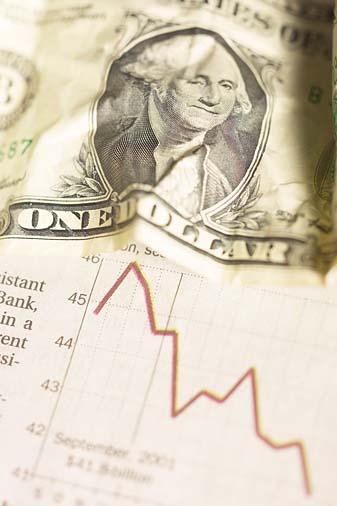YOUR NEGLIGENCE HAS CRIPPLED MY FINANCES YET YOU GET AWAY WITH IT - WHY?
Economic loss is a substantive area of law it is also a highly contentious area of law, moreover it is an area where increasing numbers of litigants seeking a remedy may fall foul of the gatekeepers. The purpose of this paper is to briefly consider what considerations the courts take into account in assessing whether or not pure economic loss is recoverable. The first part of this paper will give an overview of the topic, followed by a summary of the various categories of cases along with the outcome of court decisions and the final section will highlight the factors at work in the decision making process.
This is based primarily on prevailing UK law, though references to persuasive authority from other jurisdictions are included.
“According to Professor Winfield in Tort Law, Winfield & Jolowicz tortious liability arises from a breach of a duty primarily fixed by law: such duty is towards persons generally and its breach is redressible by an action for unliquidated damages. ” The long-established approach to defining the situations that give rise to a duty of care were based upon a practice of piecemeal expansion. The first noteworthy endeavour to educe a more principled approach came with the leading case of Donoghue v Stevenson. Whilst general principles have developed in many areas of tort, economic loss is one of those areas which have failed to produce a coherent and sustained set of rules. However one rule does exist and that is that there is no liability in tort for pure economic loss arising from negligent acts because pure economic is an area where the courts have been guarded against imposing liability too widely; hence it is not an area of loss which is usually recoverable. America Judge Cardozo J in Ultramares Corporation v Touche summed up the attitude when he said “ A thoughtless slip or blunder may expose accountants to liability in an indeterminate amount, for an indeterminate time, to an indeterminate class”
At this juncture it is important to spell out that the very term “economic loss” is an expression predisposed to mislead, as there is really no clear-cut definition, however, a potential definition for economic loss is “A loss, which is not actual injury or damage to persons or property.”
Given the foregoing it is perhaps not surprising that the outcome of a particular case will often be dependent upon the facts rather than an established principle. Moreover the courts have offered differing views as to the reason for their decisions, hence the creation of further uncertainty.
The law of tort distinguishes economic loss which is consequent upon physical damage and pure economic loss, hence when a person suffers physical damage to him/ herself or to his/her property, he or she may recover damages for the economic loss flowing from it. In the case of pure economic loss there is no physical damage.
Prior to 1963 the rule was applied very strictly and loss was not recoverable: In Simpson v Thomson Lord Penzance said that “there was no principle that where damage is done by a wrongdoer to a chattel, anyone, who had no property and no possessory right in the chattel but whose obligations under a contract with the owner had become more onerous, or whose advantages under the contract had become less beneficial by the damage done to the chattel, had a right of action against the wrongdoer”. However, in 1963 the landmark case of Hedley Byrne v Heller & Partners significantly altered the landscape. Here the claimant was a firm of advertising agents which had relied upon a reference provided by the defendant when making their decision to offer credit to a client. The statement was negligently prepared, the client was not credit worthy and the court acknowledged and. The key elements of Hedley Byrne are special skill, special relationships, voluntary assumption of responsibility by the defendant and reasonable reliance by the claimant. However, the scope of negligent misstatement seems now to have significantly broadened to a position where it is hard if not impossible to recognise the original formula laid down in Hedley Byrne v Heller.
Since Hedley Byrne the approach of the courts has not been consistent. Broadly speaking until 1982 the courts extended the right of recovery for economic loss and since then have cut it back. The position cannot be regarded as settled and there are indications in recent cases of a greater willingness to allow economic loss to be recovered where special features exist. Hence it is necessary to analyse the relationships involved and the kind of economic loss involved. The following cases will illustrate the fact that the type of economic loss and the relationship between the claimant and defendant are important considerations.
In instances where the case concerns advice about financial or legal matters or other free-standing economic loss; economic loss may be recoverable on the basis that there is foreseeability, proximity and it is fair just and reasonable, or on the basis of voluntary assumption of responsibility. Whatever the formula used the essence is that the claimant was clearly and individually identified as a possible victim: Henderson v Merrett Syndicates Ltd concurrent liability was also extended to cover financial loss, which obviously had significant effect on bankers, auditors and accountants etc. A further case in point is White v Jones a case concerning a solicitor who negligently failed to draw up a new will for the testator; the testator died; the intended beneficiaries therefore lost financially. It is not entirely clear whether any general principle emerges from White v Jones, apart from the rather hackneyed one that the courts will seek to find ways to do the right thing in a particular case; and, if it is the House of Lords, will stamp on existing principles of law if needs must. Interestingly, in this case unashamed policy analysis was used not as a restrictive device but on the contrary as a consent device employed because otherwise there would be no sanction against professional carelessness of the type at issue. In Spring v Guardian Assurance the employer was held to be liable to an ex-employee for a careless critical reference which made it impossible for him to get another job.
Another category of cases in which economic loss has been considered is where the defendant damages some property in respect of which the claimant has a contract which becomes burdensome or less profitable as a result of the damage: In the Leigh & Sullivan v Aliakmon and Candlewood Navigation Corp Ltd v Mitsui OSK Lines Ltd the courts made it clear that such losses are almost certainly not recoverable. And it must be said that this is not necessarily contradictory to the directness thesis. On the one hand, it may be that, at least in business-related cases, such losses are by and large circuitous since our society expects trade parties to factor in the risks at any time they rely upon another’s property in their undertaking On the other hand, it may be that this rule is explainable on policy grounds through real fears of “indeterminate claims for an indeterminate amount”.
An interesting case is that of Spartan Steel & Alloys Ltd v Martin. The defendants cut off a power supply to the claimants factory; the factory could not operate and production was lost the electricity supply was stopped because of a damaged cable. The claimants processing plant was half way through smelting a steel ingot. Applying the logic of economic loss, they were entitled to recover the loss of the ingot value in terms of profit and cost as the ingot was damaged. However, they were not entitled to claim for loss of profits for the disruption caused to the plant as this was not considered ‘damage’ to property. In other words if the loss suffered is connected with physical damage to property belonging to the Claimant and in some way is associated with physical harm to the Claimant then even if the loss is financial it is not pure economic loss and is recoverable. Denning M.R said” if claims for economic loss were permitted for this particular hazard, there would be no end of claims. Some might be genuine, but many might be inflated, or even false. A machine might not have been in use anyway, but it would be easy to put it down to the cut in supply. It would be well-nigh impossible to check the claims. If there was economic loss on one day, did the claimant do his best to mitigate it by working harder next day? And so forth. Rather than expose claimants to such temptation and defendants to such hard labour - on comparatively small claims - it is better to disallow economic loss altogether, at any rate when it stands alone, independent of any physical damage”.
A further category of cases emerging from the court is that involving cases where defective goods and premises are at issue, with the value being affected but where this causes no damage to a person or to other property. In Anns v Merton London Borough Council there was held to be liability on the part of the builders who had constructed buildings inadequately and of building inspectors who had approved the construction in respect of losses sustained by ultimate purchasers who were not in any contractual relation with the defendants. Anns insofar as economic loss and most similar cases were overruled by the House of Lords in Murphy v Brentwood District Council, Juniors Books Ltd v Veitchi Co Ltd perhaps marks the last in a line of similar cases. Junior Books has not been overruled but was doubted in Henderson v Merrett Syndicates and is generally accepted as being a case confined to its’ own particular facts. The decision in Murphy v Brentwood appears to represent a return to the early days of Simpson v Thomson but this is not strictly so. Liability is not automatically limited to physical loss moreover pure economic loss can be recovered particularly in relation to negligent advice and being able to make a distinction between circumstances where pure economic loss can and cannot be recovered is vitally important.
The following now seems established; the loss in such cases is to be classified as economic although there is a physical change in the building. There is a clear distinction between property which is defective and thereby causes damage to people or other property and property which merely is defective and therefore is worth less than it should be or will cost money to repair. It should be noted that in most situations there is genuine economic damage, that is that the tort causes the claimant to have less money than he had before but sometimes as in White v Jones the claimant does not get the increase in his financial position for which he had hoped.
Given the importance of the tort of negligence, and of economic considerations to the overall health of the United Kingdom it is perhaps surprising that there is still no agreement as to the basis upon which to restrict or allow recovery, that is how a court should decide whether or not to hold a careless defendant liable for harm. Since Caparo Industries plc v Dickman the three stage test of foreseeability, proximity and fairness, justice and reasonableness must be taken into account, and statements made obiter dicta in the maritime cases Landcatch Ltd v International Oil Pollution Compensation Fund and J. Tilbury & Sons (Devon) Ltd. v. Alegrete Shipping Co. Inc., Assurance foreningen Skuld, International Oil Pollution Compensation Fund 1971 and Others - The "Sea Empress" involving compensation under the Merchant Shipping Acts, suggest recovery for losses of profits against those who contaminate fishing waters, without having to prove any assumption of responsibility. The comments were purely obiter and were made plainly on grounds of the directness of such loss. It remains to be seen whether settled policy concerns might be set aside in such cases for similar reasons an indication that this might be so is illustrated by the fact that The Aliakmon decision has been reversed on its facts by the Carriage of Goods by Sea Act 1992 but rather confusingly the principle still stands and so in such cases there is in general no liability in English law for economic loss.



Conclusion
In reviewing the policy issues involved and the reasons for the difficulty in establishing satisfactory rules five main considerations require deliberation.
The first is danger of limitless liability to a range of potential claimants. This is the principal justification and is commonly known as the "floodgates" argument . The argument essentially is that in certain situations if the remedy was given then there would be no end to those that could enter the chain of recovery.
A second consideration is the need to establish a clear line between recoverable and non-recoverable loss so that litigants can be fairly sure on which side of the line they fall. Here the issue of remoteness comes into play. Once economic consequences are taken into account independently from and in the absence of any physical consequences, important problems arise for the law in deciding how far the responsibility of the actor should extend. It is in the context of liability for negligent misstatement that these problems have been particularly recognized. The Courts have retreated from the extreme proposition that liability for economic loss can be approached in the same way as liability for physical injury
Thirdly, the relationship between contract claims and tort claims, and whether an expansion in tort for pure economic loss threatens the boundaries of contractual liability for instance by avoiding the rules which still exist on privity of contract. It is not the job of the courts to redistribute economic losses that are otherwise more appropriately determined by means of contractual agreements between the parties.
A fourth issue concerns problems of foreseeability. The Defendant may suffer a penalty that is inconsistent with the consequence of his deed. This can be exemplified as follows: if negligence on the part of the defendant causes interruption to the claimants business there is a likelihood that any competitors the claimant might have will gain from the disruption and it would be unthinkable to expect those competitors to be liable to the defendant to repay that gain. It therefore follows that if the defendant is required to pay the claimant in full it may suffer a disproportionate amount. In the capitalist market one party’s economic loss is another party’s gain. It’s a well known and undisputable fact of business. In Perrett v Collins Lord Justice Hobhouse said “Economic loss is altogether a more sophisticated concept. It relates to economic advantage or disadvantage usually in the context of business activities. A number of particular difficulties arise. One is that in a competitive economic society the conduct of one person is always liable to have economic consequences for another and, in principle, economic activity does not have to have regard to the interests of others and is justifiable by the actor having regard to his own interests alone”.
Finally there are economic arguments for example does it make economic sense for the claimant to take out insurance against the possible loss. “Every day countless people suffer economic loss of one kind or another through acts or omissions of others, and to seek to apportion blame and redistribute such losses would involve massively cumbersome and expensive legal” Machinery Lee v Taunton and Somerset NHS Trust.
In conclusion it can be seen that whilst it seems generally the courts do not like encouraging claims for economic loss there are confusing signals which therefore make it difficult to predict with any certainty whether a claim will be successful or not.





